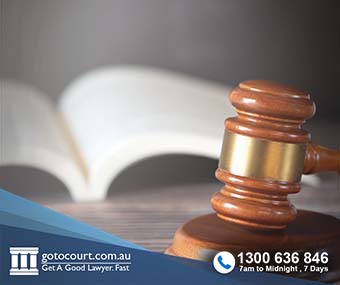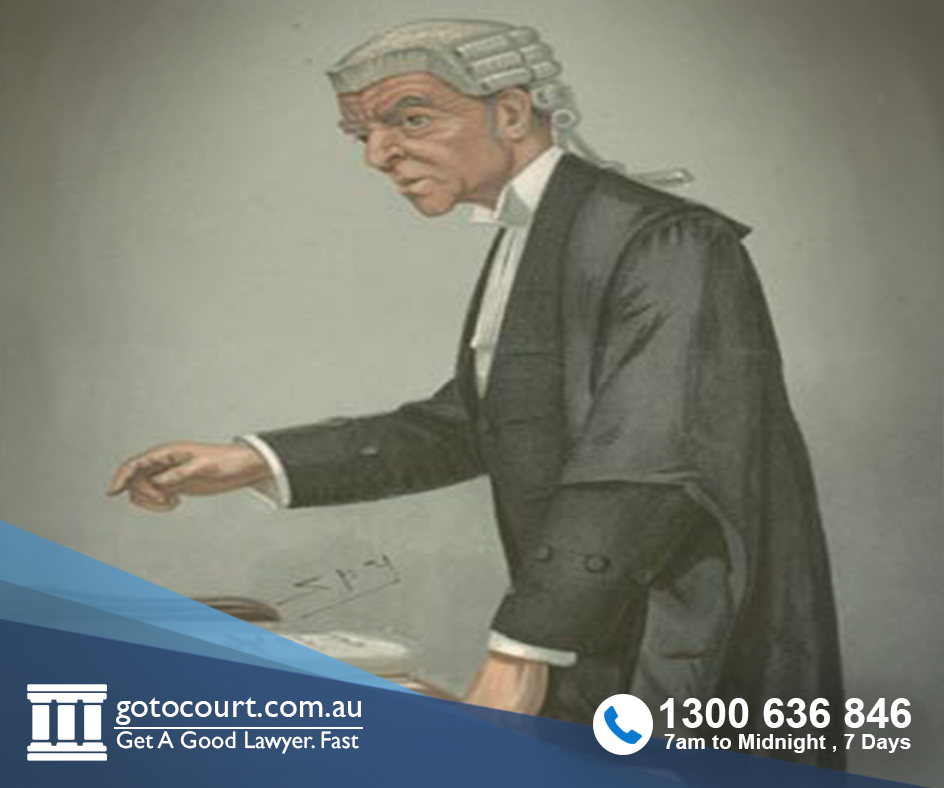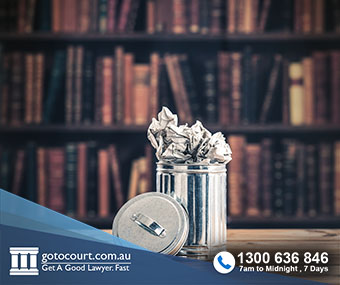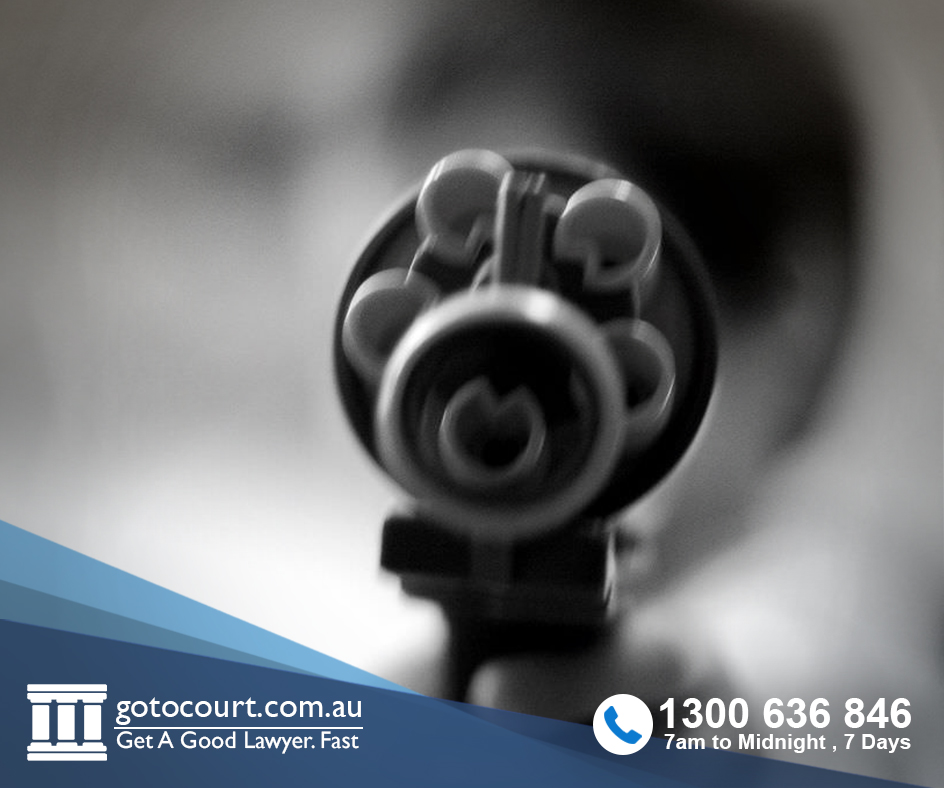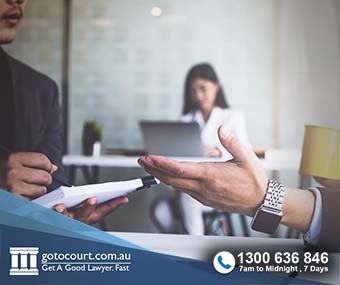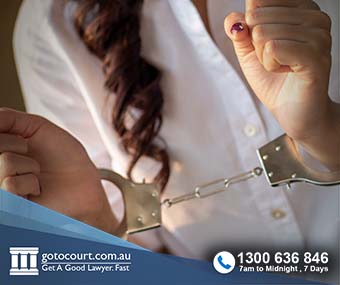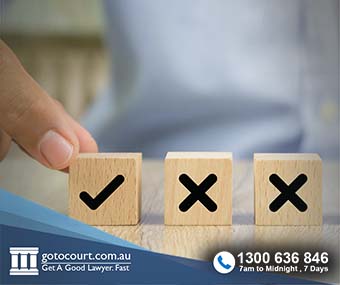Call our lawyers
now
or,
have our lawyers
call you
Criminal Defences in Queensland
Updated on Oct 10, 2022 • 11 min read • 747 views • Copy Link
Criminal Defences in Queensland
Most criminal defences in Queensland are set out in the Queensland Criminal Code 1899. Defences in criminal cases work in a very particular way. In criminal cases the prosecution has to prove all of the elements of a particular offence beyond reasonable doubt. If the prosecution fails to prove one of the elements of the offence to this standard, the accused will be found not guilty of the charge. One of the ways that the defence can defeat a charge is by successfully raising a legal defence. This article sets out criminal defences in Queensland.
Chapter 5 of the Criminal Code 1899 includes a number of general defences which apply to most offences. Some offences are specifically excluded from these Chapter 5 general defences. The Code also includes a number of defences which apply only to certain offences. These are generally contained with the offence provision itself, in the same chapter or in the same division. These types of defences will specifically state to which offences or in what circumstances the defence applies.
General criminal defences in Queensland – complete defences
Criminal lawyers usually refer to defences that result in the complete exoneration of an accused as ‘complete defences.’ This is distinct from ‘partial defences’, which apply to reduce the liability of an accused for committing a crime (this is discussed further below).
Self-defence for criminal offences
Self-defence is a defence to any offence involving the use of force. Such an act is not an offence it it was done in defence of oneself, in defence of another person or in defence or property. A person can successfully raise self-defence if they committed a violent act because they believed it was necessary in response to a perceived threat. However, the use of force is justified in self-defence only to the extent that the accused’s actions were proportionate to the perceived threat. Unless there was a reasonable threat of serious harm or death, the amount of force used to in self-defence themselves must not have been likely to result in death or serious harm. Lethal force must not be used in defence of property.
An accused who provokes an unlawful assault can also lawfully use enough force to defend themselves. However, they cannot use self-defence if the act that provoked the unlawful assault was intended to cause serious harm or death. Under section 272 of the Queensland Criminal Code 1899, self-defence will also not apply if the other person tried to end the altercation with the accused.
Involuntariness
The defence of involuntariness is contained in section 23(1)(a) of the Queensland Criminal Code 1899. Its effect is that an accused will not be criminally responsible for their actions or omissions if those acts or omissions were done involuntarily or against their free will.
Unforeseeable consequence
The unforeseeable consequence defence acts to exonerate an accused if the accused’s actions (or omissions) were both unforeseen by them and could not be reasonably have been foreseen.
Mistake of fact
The mistake of fact defence allows an accused to be found not guilty of a strict liability offence when they acted under an honest and reasonable belief that a particular set of circumstances existed. For example, *if an accused had been fishing in an area where it was illegal but they believed on the basis of their GPS readings that they were in a legal fishing area. In this example, the accused may be successful in claiming the defence of mistake of fact.
If a claim of mistake of fact is successful, the facts of the case will be treated as if things were as the accused (mistakenly) believed them to be. This might then mean complete exoneration for the accused but it also may not. It all depends on the actions of the accused in the particular case.
The defence does not apply to a mistake as to how the law applies. The Code clearly provides that ignorance of the law will not excuse a person from an offence unless the offence clearly states otherwise (under section 22(1)) of the Queensland Criminal Code 1899.
Honest claim of right
Under section 22(2) of the Queensland Criminal Code 1899, the honest claim of right defence applies to an accused who:
- Acts or fails to act;
- In relation to property;
- Because they believed that they had a right to the property; and
- The belief was honest which mean they had no intent to defraud
This defence only applies to cases where the accused has been charged of a property offence. In these cases, the accused can use the honest claim of right if they can prove the above steps.
Extraordinary emergency
In some cases, an offence could be committed because of an extraordinary emergency. The defence under section 25 of the Queensland Criminal Code 1899, allows an accused to not be found guilty if they had no choice but to commit the offence in a sudden or extraordinary emergency situation. To successfully claim the extraordinary emergency defence, an accused must prove that it could not be reasonably expected that an ordinary person would acted differently in that situation.
Insanity
In Queensland there is a legal presumption in section 26 of the Queensland Criminal Code 1899 which states that every person is of sound mind. This means the court will take the legal presumption to be true until there is evidence to suggest otherwise.
To establish the insanity defence under section 27(1) of the Queensland Criminal Code 1899, it must be proved that at the time of committing the offence the accused was suffering from some kind of mental disease or infirmity. It must be then proved that the accused was unable to understand, control their actions, or unable to determine that they should not act as they did as a direct result of their mental disease or infirmity.
Further, there are special rules if the accused was suffering from mental delusions at the time of the offence (section 27(2)) of the Queensland Criminal Code 2899. In these cases, the accused will only be held responsible for their conduct had the circumstances actually been as the person believed them to be.
A successful insanity defence results only in a ‘qualified acquittal’ which means that that the accused will be held for treatment indefinitely in a facility.
Intoxication
The intoxication defence acts as a ‘temporary insanity’ defence but only in very specific cases. An accused whose mind was ‘disordered’ due to intoxication by drugs or alcohol will be treated as insane at the time of the offence. This only applies if they did not, in ‘to any extent’ intentionally intoxicate themselves.
The intoxication defence is only relevant to offences which require the accused to have intent. As unintended intoxication has the result of being legally treated as insane at the time of the offence, this defence is relevant to determining whether the accused had the capacity to intend to commit the offence.
Immature age
Under section 29(1) of the Queensland Criminal Code 1899, children under the age of 10 cannot be held responsible for any criminal offences in Queensland.
For children who are 10 years or over but are under 14 years, there is a legal assumption that they cannot be criminally responsible. This legal presumption can be overturned if the prosecution can provide proof that the child was capable of understanding that they should not have acted as they did at the time of the offence.
Duress or compulsion
The defence of duress (also known as ‘compulsion’ in Queensland) can be claimed if the accused:
- was carrying out the law or they were obeying some authority (unless the conduct was clearly unlawful);
- can show there was a threat of serious violence to the accused or someone else in their presence if the accused refused to commit the offence; and
- acted to save any person or property from serious harm.
This defence will apply as long as the accused reasonably believed there was no way to avoid the violence. The accused’s conduct must also be proportionate to the threat.
Under section 31 of the Queensland Criminal Code 1899, this defence does not apply to the following offences:
- Murder
- Manslaughter,
- Offences which involve causing or intending to cause, serious harm, or
- Anyone who has voluntarily become involved in some kind of unlawful association or conspiracy.
General criminal defences in Queensland – partial defences
As stated above, there are a number of criminal defences in Queensland which will not completely absolve the accused of responsibility, but to reduce their liability. This means that the accused will still be held criminally liable for their actions but that liability will be at a lower extent than the original offence. These kinds of defences are known as partial defences.
Diminished responsibility
Diminished responsibility is only a partial defence. It applies to downgrade a murder conviction to manslaughter.
The diminished responsibility defence applies in circumstances where an accused unlawfully kills another person and has an abnormality of mind to the extent that their capacity to control their actions is substantially impaired. The defence acts as a partial defence to downgrade the charge of murder to manslaughter.
Provocation
One of the most controversial criminal defences in Queensland is provocation. In cases where a person is charged with an offence involving the use of force but there was provocation by the victim, the defence acts as a partial defence to a charge of murder (reducing the verdict to manslaughter) or a full defence to assault (leading to an acquittal).
The provocation defence states that an accused will not be criminally responsible for an assault if they were provoked to the extent that the accused lost their self-control. For this defence to succeed, the assault must have been proportionate to the provocation. Similarly, the force used by the accused must not have been intended to cause grievous bodily harm or cause death.
Specific criminal defences in Queensland
There are many specific criminal defences in Queensland law. Specific defences are defences which apply to specific offences and are used by criminal defence lawyers strategically. The most common ones are discussed below.
Consent
The consent of the alleged victim is a defence to sexual assault and rape charges. It can also be raised in cases of assault under section 245 and 246 of the Queensland Criminal Code 1899. Consent cannot be used as a defence against crimes where grievous bodily harm or death has been inflicted (per section 284).
The use of consent is therefore restricted to offences that require the non-consent of the victim as an element that the prosecution must prove beyond reasonable doubt.
Double jeopardy
The double jeopardy defence can be used if an accused has been previously been acquitted or convicted for the same or a similar offence which arose out of the same conduct.
Double jeopardy acts differently in cases of murder (sections 678B and 678D of the Queensland Criminal Code 1899). If there is fresh and compelling evidence that was not available in the first instance, double jeopardy may not apply.
Similarly, under sections 678C and 678E, the defence may not apply if an acquittal arose because of perjury or a similar reason.
Honest and reasonable belief of age
For sexual offences involving underage children, there is a defence of honest and reasonable mistaken belief of age in Queensland.
The age of consent in Queensland is 16. There is therefore a legal presumption that children under the age of consent are unable to provide consent for sex acts.
The honest and reasonable belief in age defence acts to absolve responsibility for an offence where the element involves the age of the victim. The accused must have reasonable grounds and honestly believed the victim was 16.
This defence applies to the following offences:
- Indecent treatment of a child under the age of 16 years (section 210 of the Queensland Criminal Code 1899);
- Permitting the abuse of children on your premises (section 213 of the Queensland Criminal Code 1899);
- Carnal knowledge of or with a child under the age of 16 (section 215 of the Queensland Criminal Code 1899); and
- Procuring children through the internet (section 218A of the Queensland Criminal Code 1899).
A similar defence often applies for cases of abuse of people with an impairment of the mind (for example, section 216 of the Queensland Criminal Code 1899).
If you require legal advice or representation in any legal matter, please contact Go To Court Lawyers.


Affordable Lawyers
Our Go To Court Lawyers will assist you in all areas of law. We specialise in providing legal advice urgently – at the time when you need it most. If you need a lawyer right now, today, we can help you – no matter where you are in Australia.How It Works








1. You speak directly to a lawyer
When you call the Go To Court Legal Hotline, you will be connected directly to a lawyer, every time.


2. Get your legal situation assessed
We determine the best way forward in your legal matter, free of charge. If you want to go ahead and book a face-to-face appointment, we will connect you with a specialist in your local area.


3. We arrange everything as needed
If you want to go ahead and book a fact-to-face appointment, we will connect you with a specialist in your local area no matter where you are and even at very short notice.


